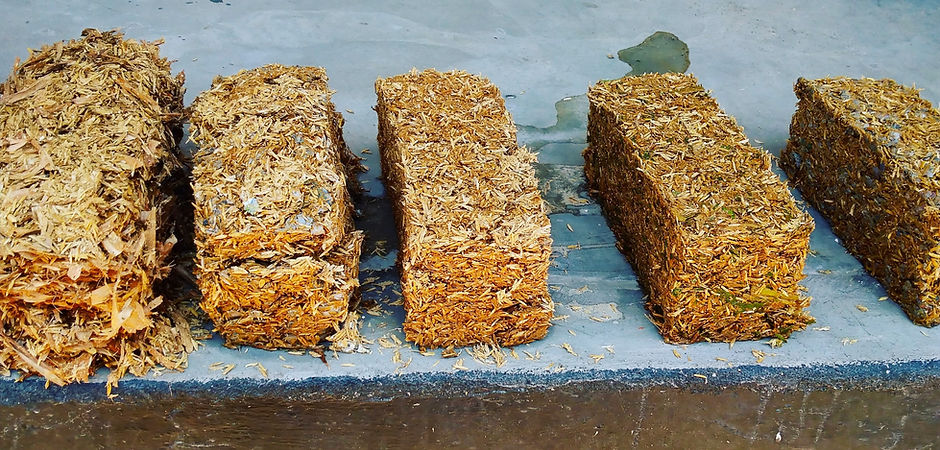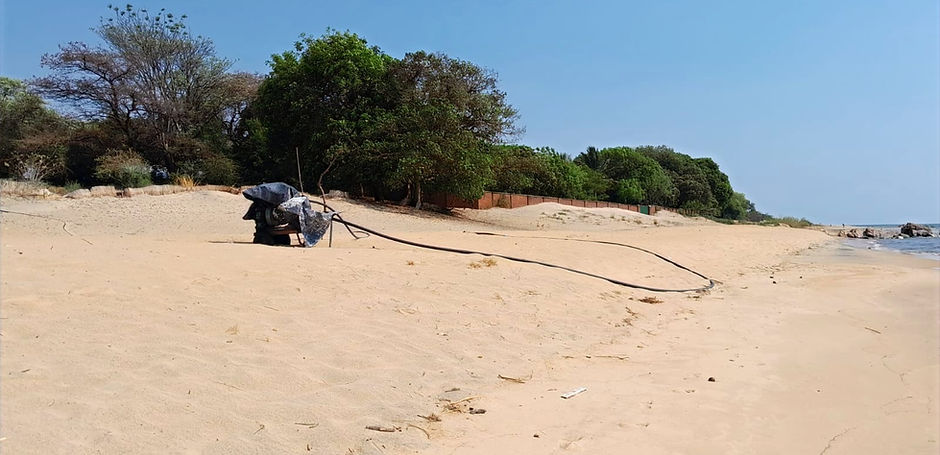A carbon offsetting co-op has been launched which offers people the chance to directly help some of the world’s poorest people who are being worst affected by global heating.
Co-operative Climate Action – launched by five volunteer co-founders from the UK, France and Malawi – says it offers offsets that “reduce carbon, sustain biodiversity, and have the potential to tackle poverty and support small community businesses., so they can be economically sustainable in the long term”.
The team is led by Mark Lewis – former chair of Wooldale Co-operative, now part of Central, and founder director of the Fair Traders Co-operative – and has already identified a number of viable projects, established a resource centre in Malawi, and undertaken a pilot planting of 360 giant clumping bamboo plants.
“Co-operatives are doing a lot to move towards net zero,” said Lewis, “but in the meantime people in Malawi, one of the poorest countries in the world, are already suffering from flooding, disease, and hunger because of climate
change, and it will only get worse over the next decade.
“Co-operative Climate Action has been launched for people who want to offset their carbon emissions by helping those worst affected in a spirit of cooperation.”
He says the bamboo plants in Malawi are one way to help tackle the climate crisis. “This non-invasive cultivar absorbs more than four times the amount of CO2 annually than the fastest growing trees and provides a sustainable source of fuel that removes the need to cut down mature trees.
“Furthermore, it can provide goat fodder, nutritious food, water treatment, erosion control, and replace steel and timber in construction.“
Action on the environment is crucial in Malawi. Lewis points out that as only a tiny minority of the population has electricity, and gas is unaffordable, charcoal and firewood is used to cook and boil water, which has led to the devastation of the country’s mature forests.
To remedy this, the co-op is working with small local groups instead of large commercial plantations. It has set up a collaboration with the Wildlife and Environmental Association of Malawi, which has over three thousand volunteer groups around the country, to establish small community plots.
“This makes planting and care easier as well as reducing the need for women to carry the fuel long distances as happens at present,” adds Lewis. “Smallholders contribute financially so they value the plants and can repay the cost after three years when harvesting starts.
“They are setting up a robust measurement, reporting and verification process and will be establishing a co-operative in Malawi to manage the project.”
Having started with investment from the founder directors, the co-op now hopes to expand the planting and implement other projects with funding from the co-operative movement.
One possible area of action is replacing the charcoal fires used for cooking and heating. Potential solutions depend on the local conditions, says the co-op, but in this part of Malawi agricultural waste in the form of rice husks and bagasse from sugar cane is readily available.

This can be converted to fuel briquettes using simple technology, but local businesses need a capital and training to get started. The co-op says it has obtained a pilot-cale machine to demonstrate the technology and now needs funding to get the product into the market and scale up production.
Another project in its early days is Sani Carpentry Co-operative, set up to sell products made from sustainable wood. Co-operative Climate Action has donated a building and tools to the start-up and found a carpenter willing to train local young people. Sani now needs funding to install solar power and cover its initial losses.
Funds are also needed for the Kasangazi Hydro Scheme, set up by a local construction worker on small hillside stream “using a 10m plastic pipe, an old generator, some wire and a couple of old pop bottles to increase the outlet water velocity; all for about £200”.
It supplies power to over 50 households, plus the local primary school, and maize mill with power so they can have light in the evenings, charge phones, and watch TV. It has secured funding to build a proper dam but the turbine and generator need replacing, and it also has plans a small manufacturing unit.
Co-operative Climate Action also wants to introduce solar pumps, to replace the petrol ones used to extract water from Lake Malawi for irrigation, and to dam a feeder stream for use as a fish pond. It has identified a possible site and is receiving technical assistance from the fisheries department.

One of the effects of climate change on Malawi is disruption to the electricity supply – it has reduced water levels in the country’s hydro power system so severely there are frequent power cuts. To help people light their homes at night – allowing children to study – the co-op is importing solar panels, LED light bulbs and rechargeable batteries for under £15 for households to buy over a six-month period. It is now looking for funds to increase the shipment and set up a business to administer the scheme.
Individuals or corporates can become members and purchase co-offsets from the co-op’s website and are encouraged to assist with the development of the business.
For further information contact Mark Lewis at: [email protected]